Related Research Articles

The Canadian Armed Forces, or Canadian Forces, are the unified armed forces of Canada, as constituted by the National Defence Act, which states: "The Canadian Forces are the armed forces of Her Majesty raised by Canada and consist of one Service called the Canadian Armed Forces."
Sexual harassment is a type of harassment involving the use of explicit or implicit sexual overtones, including the unwelcome or inappropriate promise of rewards in exchange for sexual favors. Sexual harassment includes a range of actions from verbal transgressions to sexual abuse or assault. Harassment can occur in many different social settings such as the workplace, the home, school, churches, etc. Harassers or victims may be of any gender.

Stonewall is a lesbian, gay, bisexual and transgender (LGBT) rights charity in the United Kingdom, named after the 1969 Stonewall riots in New York City's Greenwich Village. It is the largest LGBT rights organisation in Europe and was formed in 1989 by political activists and others lobbying against section 28 of the Local Government Act. Its founders include Sir Ian McKellen, Lisa Power MBE and Lord Cashman CBE.
Human rights in Australia have largely been developed under Australian Parliamentary democracy through laws in specific contexts and safeguarded by such institutions as an independent judiciary and High Court which implement the Common Law, the Australian Constitution and various other laws of Australia and its states and territories. Australia also has an independent statutory human rights body, the Australian Human Rights Commission, which investigates and conciliates complaints, and more generally promotes human rights through education, discussion and reporting.
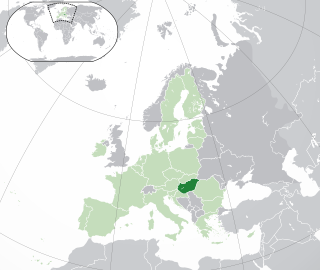
LGBT people in Hungary may face legal and social challenges not experienced by non-LGBT residents. Homosexuality is legal in Hungary for both men and women. Discrimination on the basis of sexual orientation and gender identity is banned in the country. However, households headed by same-sex couples are not eligible for all of the same legal rights available to opposite-sex married couples. Registered partnership for same-sex couples was legalized in 2009, but same-sex marriage is banned.The Hungarian government has passed legislation that restricted civil rights on LGBT Hungarians and continues to deteriorate under his government.
Lesbian, gay, bisexual, transgender, and queer (LGBTQ) personnel are able to serve in the armed forces of some countries around the world: the vast majority of industrialized, Western countries, in addition to South Africa, and Israel. The rights concerning intersex people are more vague.
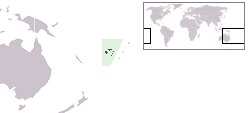
Lesbian, gay, bisexual and transgender (LGBT) people in Fiji may face legal challenges not experienced by non-LGBT residents. In 1997, Fiji became the second country in the world after South Africa to explicitly protect against discrimination based on sexual orientation in its Constitution. In 2009, the Constitution was abolished. The new Constitution, promulgated in September 2013, bans discrimination based on sexual orientation and gender identity or expression. However, same-sex marriage remains banned in Fiji and reports of societal discrimination and bullying are not uncommon.

Lesbian, gay, bisexual, and transgender (LGBT) people have the same rights as other people in New Zealand. The protection of LGBT rights is advanced, relative to other countries in Oceania, and is one of the most liberal in the world, with the country being the first in the region and thirteenth in the world to enact same-sex marriage.

Lesbian, gay, bisexual and transgender (LGBT) rights in Australia have advanced since the late-twentieth century. LGBT people in Australia are afforded protection from discrimination and are equally regarded as individuals who possess the same rights and responsibilities as others.
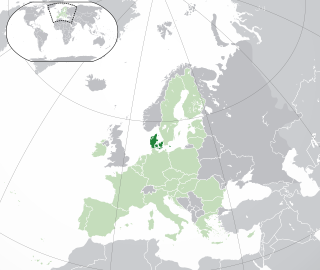
The rights of lesbian, gay, bisexual and transgender persons in Denmark are some of the most extensive in the world.
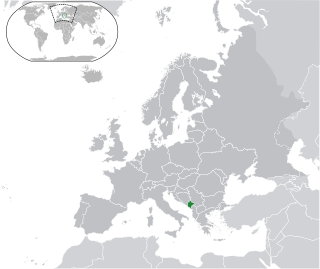
Lesbian, gay, bisexual, and transgender (LGBT) persons in Montenegro may face legal challenges not experienced by non-LGBT residents. Both male and female same-sex sexual activity are legal in Montenegro, but households headed by same-sex couples are not eligible for the same legal protections available to opposite-sex married couples.
The Gay Police Association (GPA) was a British police staff association with members in all 52 UK police forces. The GPA was founded in 1990 by Constable James Bradley as LAGPA, and represented the needs and interests of gay and bisexual police officers and police staff in the United Kingdom. Other founding officers were Iain Ferguson, Ashley Wilce and Tony Murphy.
Freedom of religion in Singapore is guaranteed under the Constitution. However, the Government of Singapore restricts this right in some circumstances. The Government has restricted the Jehovah's Witnesses and banned the Unification Church. The Government does not tolerate speech or actions that it deems could adversely affect racial or religious harmony.

Women currently make up 17.9% of the ADF workforce. Women have served in Australian armed forces since 1899. Until World War II women were restricted to the Australian Army Nursing Service. This role expanded in 1941–42 when the Royal Australian Navy (RAN), Australian Army and Royal Australian Air Force established female branches in which women took on a range of support roles. While these organisations were disbanded at the end of the war, they were reestablished in 1950 as part of the military's permanent structure. Women were integrated into the services during the late 1970s and early 1980s, but were not allowed to apply for combat roles until 2013. Women can now serve in all positions in the Australian Defence Force (ADF), including the special forces.
Gay and lesbian citizens have been allowed to serve openly in the Her Majesty's Armed Forces since 2000. The United Kingdom's policy is to allow homosexual men, lesbians and transgender personnel to serve openly, and discrimination on a sexual orientation basis is forbidden. It is also forbidden for someone to pressure LGBT people to come out. All personnel are subject to the same rules against sexual harassment, regardless of gender or sexual orientation.

Sexual orientation and gender identity in the Australian military are no longer considered relevant considerations in the 21st century, with the Australian Defence Force (ADF) allowing LGBT people to serve openly and access the same entitlements as other personnel. The ban on gay and lesbian personnel was lifted by the Keating Government in 1992, with a 2000 study finding no discernible negative impacts on troop morale. In 2009, the First Rudd Government introduced equal entitlements to military retirement pensions and superannuation for the domestic partners of LGBTI personnel. Since 2010, transgender personnel may serve openly and may undergo gender transition with ADF support while continuing their military service. LGBTI personnel are also supported by the charity DEFGLIS, the Defence Force Lesbian Gay Bisexual Transgender and Intersex Information Service.
Women currently make up 14.8% of the Canadian Armed Forces, and are theoretically eligible to serve in all occupational specialties. The last occupational ban for females in the military, which restricted women from serving aboard submarines, was lifted in 2001. Nonetheless, women constitute a mere 2.4% of combat arms, and there are currently no women that serve in combat specialties within special operations forces. Females who obtain officer status are mainly concentrated in the personnel and nursing fields, and no female has ever served as the head of an operational unit.
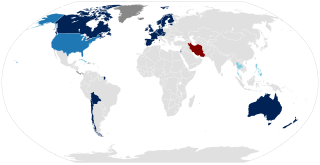
Not all armed forces have policies explicitly permitting LGBT personnel. Generally speaking, Western European militaries show a greater tendency toward inclusion of LGBT individuals. As of 12 April 2019, 19 countries allow transgender military personnel to serve openly: Australia, Austria, Belgium, Bolivia, Canada, the Czech Republic, Denmark, Estonia, Finland, France, Germany, Ireland, Israel, Netherlands, New Zealand, Norway, Spain, Sweden, and the United Kingdom. Cuba and Thailand reportedly allowed transgender service in a limited capacity. In 1974, the Netherlands was the first country to allow transgender military personnel.

Military service of intersex people varies greatly by country. Some armed forces such as the Australian fully embrace intersex people in modern-day while others have vague rules or policies or treat the subject on a case by case basis, such as the United States.
This overview shows the regulations regarding military service of non-heterosexuals around the world.
References
- ↑ Ministry of Defence [internet] http://www.mod.uk/DefenceInternet/Home
- 1 2 3 4 5 Davies, Q., Clark, B., and Sharp, M. (May, 2008). "Report of Inquiry into National Recognition of our Armed Forces, Report to the Prime Minister".
- 1 2 3 Fletcher, Hannah (5 September 2008). "Soldier forced to sleep in car after hotel refuses him a room". The Times . Retrieved 13 July 2011.
- ↑ "Soldiers banned from pubs in Stamford". BBC News. 6 July 2002. Archived from the original on 22 May 2009. Retrieved 13 July 2011.
- ↑ Staples, J. (2008). "Soldier is turfed out of hotel for being in Army". Metro, 5 September 2008, p.5
- 1 2 Graf Pahlen, K. and Idris, T., "Joining Forces", Solicitors Journal, Vol. 153 no 43, 17 November 2009.